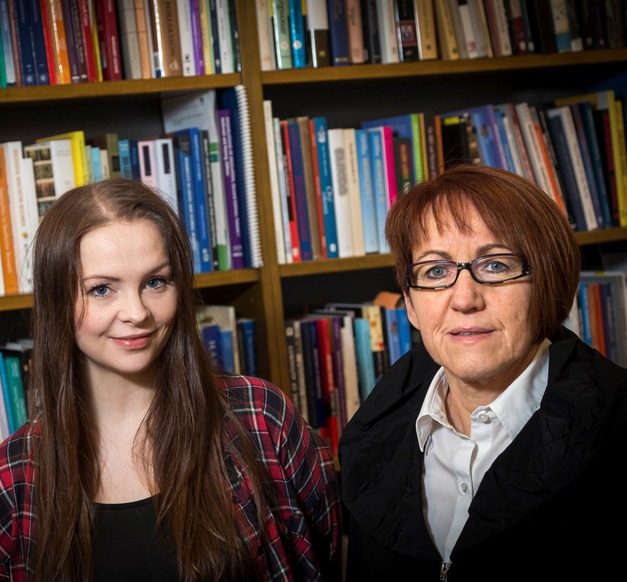Hrafnhildur Snæfríðar- and Gunnarsdóttir, doctoral student, and Professor Rannveig Traustadóttir, both at the Faculty of Social and Human Sciences
Studies show that disabled women are more likely to have experienced violence than non-disabled women. It has, moreover, been found that disabled women in Iceland do not have sufficient access to support services for survivors of violence. Professor Rannveig Traustadóttir and the doctoral student Hrafnhildur Snæfríðar- and Gunnarsdóttir are conducting research in the field of disability studies. They recently participated in an extensive European study focusing on gaining a better understanding of violence against disabled women as well as their access to support services that aid them.
"We made a point of ensuring that the results of the project would be developed into useful practical information that may benefit future activities and implementations aimed at promoting support to disabled women who have experienced violence. We collected detailed data on disabled women's experiences of violence as well as their experiences with support services for victims. Based on this data, we developed guidelines regarding how support can be made more effective, and also put forward suggestions on how to improve access for disabled women to such support services", says Rannveig.
Hrafnhildur Snæfríðar- and Gunnarsdóttir and Rannveig Traustadóttir
"What makes the project so effective is that right from the outset, we were working in close collaboration with disabled women."

According to Rannveig, the study was initiated by Freyja Haraldsdóttir, then a master's student at the University of Iceland and disability rights activist, who approached the Centre for Disability Studies with the suggestion to participate in this European collaborative project. "What makes the project so effective is that right from the outset, we were working in close collaboration with disabled women, who were both part of an advisory board and participated in data collection. Obviously, disabled women are the specialists when it comes to their own lives and experiences. Representatives from support services were also active participants in the project," explains Hrafnhildur.
Rannveig points out that one of the most significant effects of the project was to deepen the understanding of aspects of violence previously hidden or hushed up. "The study unveils the marginalization and prejudice disabled women face and the serious violence perpetrated against them. The practical value of the study lies in numerous proposals regarding policy making, preventive measures, and effective support", Rannveig explains.
Most people conducting research in the field of disability studies base their studies on the idea of human rights, believing that research can create knowledge, laying the foundation for a better society for all. "Our research is no exception. We focus on people with disabilities, that is to say the people in Icelandic society facing the greatest levels of discrimination and social exclusion. Our goal is to change that", Rannveig and Hrafnhildur remark at the end of their interview.


